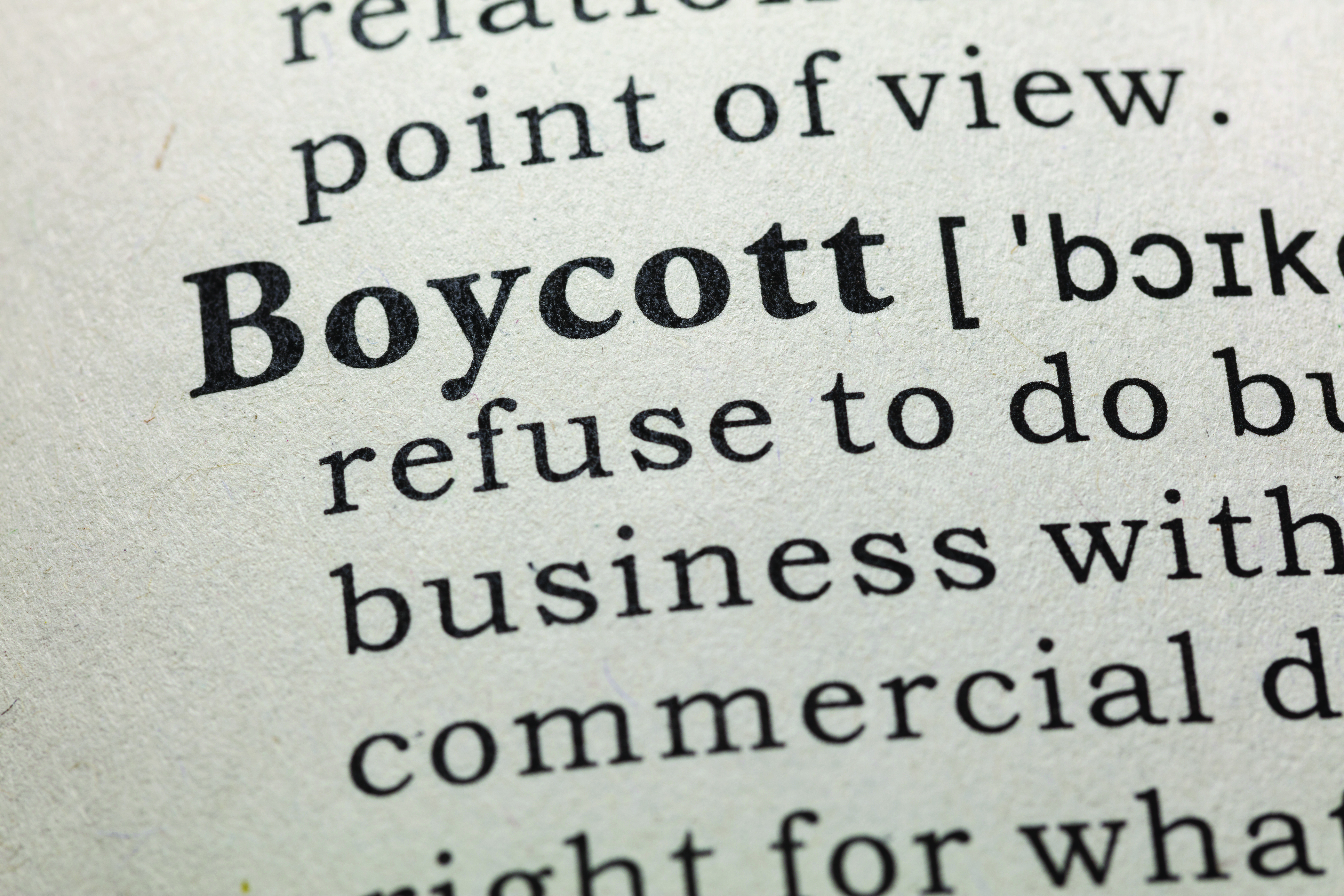The Impact of Today’s Social Activism
Your showroom business is subject to misinformation, bad reviews and boycotts depending on the views and causes you promote on social media.

Over the past few years, “cancel culture” has entered the mainstream lexicon, thanks to social media. Today, the term has become central to public debate across politics, culture and media. In short, cancel culture refers to the practice of withdrawing support for a person or company — often on social media — based on their views or actions.
Your actions as a company, what you do and say in the showroom, are open game for customers to interpret as their own — and poorly review, boycott or attempt to ruin your business. While everyone is proud of their opinions, caution must be used in how you position your business — including the brands you support, the employees you hire and what they promote on social media, and the causes you choose to endorse publicly.
This in no way means you should stop using social media as an effective tool to advertise your business and get people in the door. This column serves as a reminder to think about your actions and consider who you endorse. Social media is still the cheapest and most effective method of influencing customers and is highly effective when used properly.
The COVID-19 pandemic only served to increase the cultural impact of the Internet on society. Ever since the physical world went into lockdown, people have spent a record amount of time online. Bored consumers are either shopping or trolling social platforms.
At the same time, social isolation has further facilitated online interaction, thus sparking a renewed wave of social activism. All these factors combined make cancellation one of the polarizing issues of our time — a battle that is bound to have major implications for showrooms and how they market themselves.
Promoting Causes
The cancel culture debate has spilled over into the world of marketing. Historically, companies have stayed out of politics — for good reason, as taking sides can alienate a large chunk of their customer base. But in today’s increasingly polarized climate, not taking sides can be the bigger risk.
Brands and sometimes showrooms can no longer afford to remain neutral because neutral is viewed as complicit. That being said, empty statements of solidarity no longer suffice either. The consumers of today are more informed and empowered than ever before. They expect you to turn your words into action.
And if companies don’t stick to their promises, consumers possess the knowledge, determination and platform to call them out. In short, there’s nowhere to hide.
Many consumers will buy or boycott a brand solely because of its position on a social or political issue. Only a few years ago, the term boycott was viewed as something confined to the radical fringes of society. But today, boycotting has become a mainstream consumer reaction. And it’s not only directed toward socially irresponsible brands but also brands seen to be overplaying their social and environmental credentials.
My advice is to be careful what causes you work with and promote, and what brands you work with that overpromote causes. For example, The United Way is a charity we are all familiar with but has come under fire for supporting organizations that discriminate. Some consumers may boycott your operation if you advocate for the United Way and promote it.
At some point, a brand you currently sell may come into crisis because of the labor standards of its workers or an owner’s indiscretion. While it is difficult to predict these things, keep in mind that promoting brands other than your company or showroom can have adverse effects. My advice is to be careful which manufacturer logos you have on your trucks.
Think about what Volkswagen went through in the past 10 years and how you would feel if you were a Volkswagen dealer.
Vetting Via Social Media
Now, on the topic of your employees and potential hires — are you looking at their social media posts? Do they fit the brand of your company, your showroom? I hope you have given some thought to looking at their profiles early on and getting a feel for the social life of your team.
Who from your company manages the social media posts? As the owner, do you make sure the message is consistent with the brand you want to be? Keeping your focus local is likely the safest bet to show social engagement; working with local charity causes that distribute funds directly to your community is likely the best route to take.
While I never suggest you keep your business absent on social media, make sure you take the time to think about the possible backlash of a thoughtless post — whether it be poor humor, supporting political groups or a charity that isn’t vetted.
The positions you take in marketing and social media impact not only the customers you attract (or don’t), but the employees you attract (or don’t). Hiring qualified people in today’s topsy-turvy job market remains one of the industry’s top concerns. Besides pay and benefits, employees want to align themselves with a culture they can believe in; they will look at your company’s social media presence to make sure you are a fit for them as well.
Comedian and activist Jon Stewart once told Amazon’s Jeff Bezos at a dinner that workers wanted fulfillment, not jobs running errands for rich people — he said it was a recipe for revolution. Bezos said the economy of the future would rely on service workers to perform tasks. Stewart added that people wanted to feel proud of their work and contribute to society.
My advice would be to promote your business as much more than a fulfillment center; market the culture and activities that people are attracted to. Make sure your showroom is a place where employees can enrich their lives in many ways.
The world we live in today is cause for concern — and optimism. I am certain those who invented the Internet and social media would have never imagined the cesspool it has turned into. Navigating the world where our business and our views are always on the first page of Google search results is difficult.
Managing misinformation, false reviews in the hopes of damaging a business, and the firing squad of people judging you and your business is sometimes an overwhelming task. Making sure you aren’t afraid to continue a marketing strategy is a must.
I follow many showrooms and wholesalers in the country. If you have a good strategy and marketing campaign, please let me know so I can follow you and watch good things happen!





